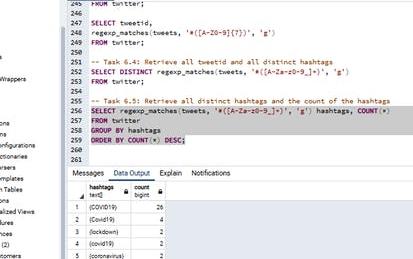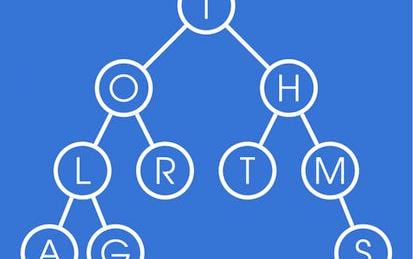

Our Courses

String Processing and Pattern Matching Algorithms
Learn about pattern matching and string processing algorithms and how they apply to interesting applications.
-
Course by

-
 Self Paced
Self Paced
-
 English
English

Finding Mutations in DNA and Proteins (Bioinformatics VI)
In previous courses in the Specialization, we have discussed how to sequence and compare genomes. This course will cover advanced topics in finding mutations lurking within DNA and proteins. In the first half of the course, we would like to ask how an individual's genome differs from the "reference genome" of the species. Our goal is to take small fragments of DNA from the individual and "map" them to the reference genome.
-
Course by

-
 Self Paced
Self Paced
-
 24 hours
24 hours
-
 English
English

Introduction to Regular Expressions in SQL
Welcome to this project-based course, Introduction to Regular Expressions in SQL. In this project, you will learn how to use SQL regular expressions extensively for pattern matching to query tables in a database. By the end of this 2-and-a-half-hour-long project, you will be able to use POSIX regular expressions together with meta (special) characters in the WHERE clause and the SELECT clause to retrieve the desired result from a database. In this project, we will move systematically by first revising the use of the LIKE and NOT LIKE operators in the WHERE clause.
-
Course by

-
 Self Paced
Self Paced
-
 3 hours
3 hours
-
 English
English

Managing Relational Databases
Students will learn about the structure and design of relational databases including primary and foreign key fields, one-to-many and one-to-one relationships. Students will learn about the Structured Query Language (SQL) and use SQL to examine the database structure. They will also learn to create and manage databases, tables, and records. The focus of the course is on data analysis. Students will start with basic SQL queries then learn to add conditional statements, and logical, comparison and arithmetic operators.
-
Course by

-
 Self Paced
Self Paced
-
 18 hours
18 hours
-
 English
English

Advanced SAS Programming Techniques
In this course, you learn advanced techniques within the DATA step and procedures to manipulate data. “By the end of this course, a learner will be able to…” ● Use additional functions (LAG, FINDC/FINDW, and COUNT/COUNTC/COUNTW). ● Perform pattern matching using PRX functions. ● Process repetitive code, rotate data, and perform table lookups using arrays. ● Perform table lookups and sort data using hash and hash iterator objects. ● Create numeric templates using the FORMAT procedure. ● Create custom functions using the FCMP procedure.
-
Course by

-
 Self Paced
Self Paced
-
 18 hours
18 hours
-
 English
English

Algorithms on Strings
World and internet is full of textual information. We search for information using textual queries, we read websites, books, e-mails. All those are strings from the point of view of computer science. To make sense of all that information and make search efficient, search engines use many string algorithms. Moreover, the emerging field of personalized medicine uses many search algorithms to find disease-causing mutations in the human genome. In this online course you will learn key pattern matching concepts: tries, suffix trees, suffix arrays and even the Burrows-Wheeler transform.
-
Course by

-
 Self Paced
Self Paced
-
 19 hours
19 hours
-
 English
English



